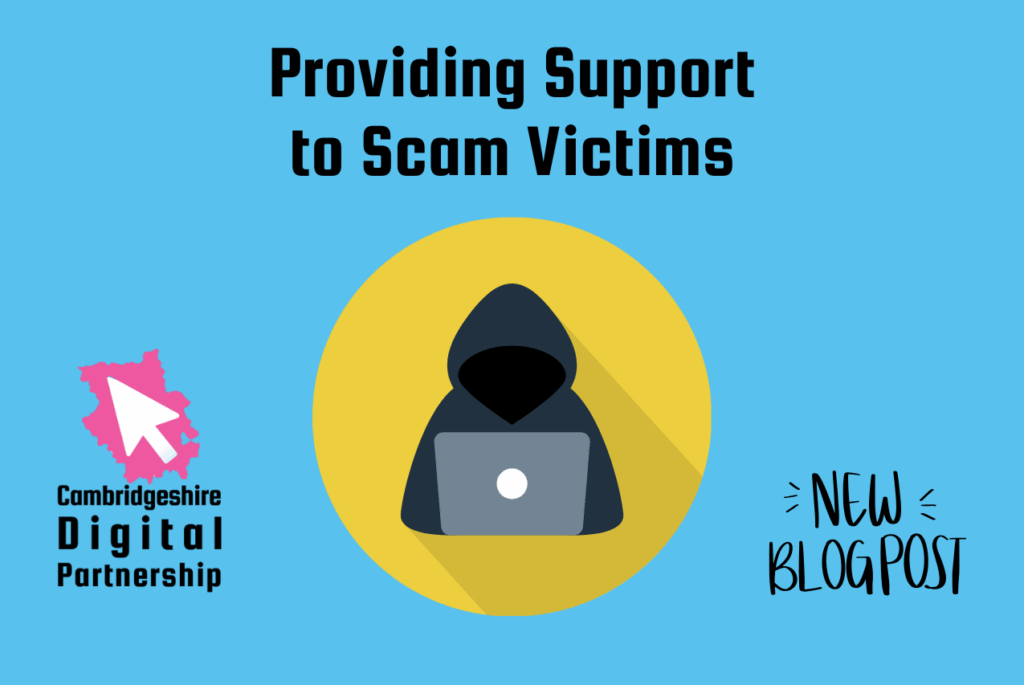Providing Support to Scam Victims

Scams are becoming increasingly sophisticated—whether through social media, email, text messages, WhatsApp, or even traditional letters, most of us have encountered them in one form or another.
Scams are not just financial crimes—they are deeply personal violations that can leave victims feeling fearful, isolated, and ashamed. Behind every statistic is a story of heartbreak, manipulation, and often, silence.
73% of UK adults have been targeted by scams, with 35% losing money—an average of £1,730 per person. Yet only 5% reported the crime. The shame and stigma surrounding scams often prevent victims from speaking out, leaving them to suffer alone.
The Emotional Toll
Scammers use coercion, control, and psychological manipulation to exploit people during vulnerable moments—bereavement, illness, loneliness, or major life changes. Tactics include:
- Love bombing and befriending
- Grooming and emotional manipulation
- Threats and aggression
- Deepfakes, such as the alarming video featuring Martin Lewis, which led to devastating financial losses
Victims may experience:
- PTSD, anxiety, and depression
- Low self-esteem and emotional dependency
- Debt and financial insecurity
- In extreme cases, suicidal thoughts or actions
Some victims continue to send money or letters even after recognising the scam—because it was their only human contact. This highlights the depth of emotional manipulation involved.
Why People Fall for Scams
- Financial security
- Companionship and romance
- Support during grief or stress
- Trust in others (especially among older adults unfamiliar with digital technology)
Lockdowns forced many online, but not everyone gained the skills to navigate safely. The average age of scam victims is 76, and many still believe what they see online.
Hot State vs Cold State Thinking
Scammers strike when emotions are high—during a hot state. Victims may make decisions they wouldn’t normally make.
In a cold state, people are rational and logical. Understanding this helps explain why smart, capable individuals can still become victims.
Changing the Conversation
We must stop blaming victims.
Phrases like:
- “How could you fall for that?”
- “Didn’t you trust your instincts?”
- “If it’s too good to be true…”
…only deepen the trauma. Instead, use language that puts responsibility where it belongs—on the criminals. Talk about grooming, manipulation, and power and control.
Say “you had money stolen,” not “you fell for a scam.”
Understanding Trauma and Recovery
Victims often experience secondary victimisation—reliving the crime, being shamed by banks or authorities, and fearing it will happen again. They may:
- Avoid leaving the house
- Struggle to sleep
- Self-medicate with alcohol
- Feel guilt, anger, and sadness
Professional help, such as Cognitive Behavioural Therapy (CBT), can be life-changing. CBT helps break negative thinking and rebuild confidence in manageable steps. Visit Mind’s website for more information.
Supporting Victims: A Person-Centred Approach
Every victim is different. A person-centred approach honours their choices, supports independence, and promotes dignity and well-being.
In your first meeting:
- Let the victim lead the conversation
- Use plain English and short sentences
- Ask open questions
- Avoid pressure or judgment
- Empower them to make decisions
The average UK reading age is 9–12 years old. If you provide reading materials that are too complex, people may avoid reading or listening.
Building Strength and Resilience
Use a strength-based approach:
- What is the victim confident about?
- What would they like to be more confident about?
- Encourage support networks
- Be gentle and avoid causing more fear
Invite victims to become Scam Marshals through Friends Against Scams, helping others while regaining their own confidence.
Talk About It
Scams cost the UK economy £219 billion a year, but the emotional cost is even greater. Talking openly about scams with family and friends helps break the stigma. Anyone can be a victim—there is no shame.
Useful Resources
- Friends Against Scams
- National Trading Standards Scams Team
- Age UK – Avoiding Scams Guide
- Action Fraud
- Scams | Cambridgeshire County Council
Cybersecurity for community groups: Simple steps to stay safe.